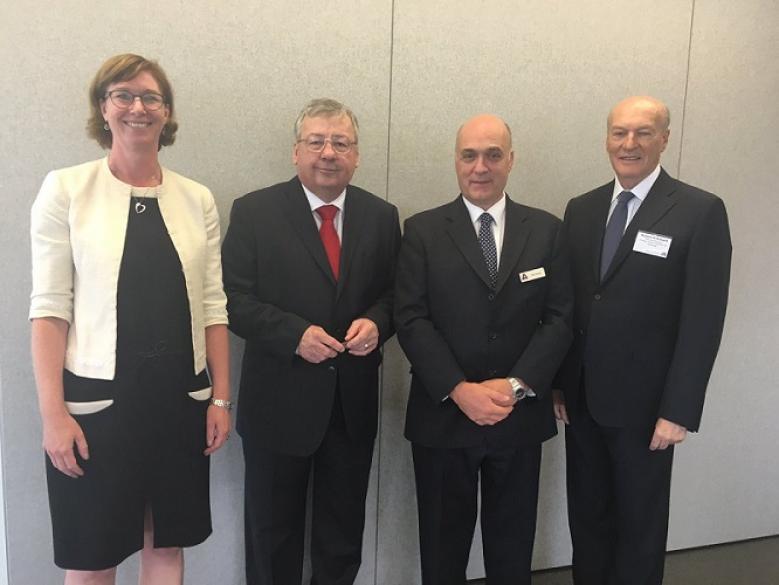
USEA’s Worthington says Australia should consider an ‘all-of-the-above’ energy policy
FOR IMMEDIATE RELEASE
February 24, 2017
USEA’s Worthington says Australia should consider an ‘all-of-the-above’ energy policy
Washington, D.C.— U.S. Energy Association Executive Director, Barry Worthington told Australian energy ministers and business leaders this week the country should consider using all of its resources to manage its energy challenges.
“In the U.S., we need every type of energy source we can get. Australia also needs to have an ‘all-of-the-above’ energy strategy,” Worthington said.
Worthington traveled to Sydney, Melbourne, and Brisbane where he spoke with energy industry and business leaders from the American Chamber of Commerce.
He rounded out his trip in Canberra where he met with energy ministers to discuss energy resource management, U.S. energy policy under the Trump administration and its impact on the global energy landscape.
Australia is wrangling with a variety of energy issues, from energy resource management and old infrastructure, to a shortage of electricity generation sources, in particular, natural gas, even though the country is the largest exporter of liquefied natural gas in the world.
Despite this, the country continues to move away from coal generation in an effort to reduce its carbon emissions, 40 percent of which come from the coal-dominant electric sector. And last fall, South Australia suffered a major blackout.
“In many countries, coal is not only the most reliable but the most economical energy source. Why would you do away with your most reliable and most economical supply?” Worthington said.
Moreover, Australia has not embraced shale gas and oil from hydraulic fracturing and horizontal drilling, two technologies Worthington credits for sparking the U.S. energy revolution.
“We’re fortunate relative to Australia in that we have an abundant supply of natural gas, and it’s very inexpensive. This is reigniting manufacturing in the United States. If President Trump can unleash industry from the regulatory tangle that we’re currently caught up in, we can produce more fossil energy, but also renewable energy. We’ll then be able to export coal, natural gas, crude oil and refined petroleum products around the world,” Worthington said.
“Most economies want to be energy independent. In Europe you might find you’re better off importing from your neighbor, particularly if you can import electricity cheaper. But generally each country wants energy security and to be energy self-sufficient. The more that we can inject abundant and affordable U.S. energy resources into the world market, the more leverage the U.S. and its allies have in dealing with countries like Russia and those in the Middle East,” Worthington said.
If you would like to speak with Barry Worthington, please reach out to Dipka Bhambhani at dbhambhani@usea.org. Please follow USEA on Twitter: @USEnergyAssn
